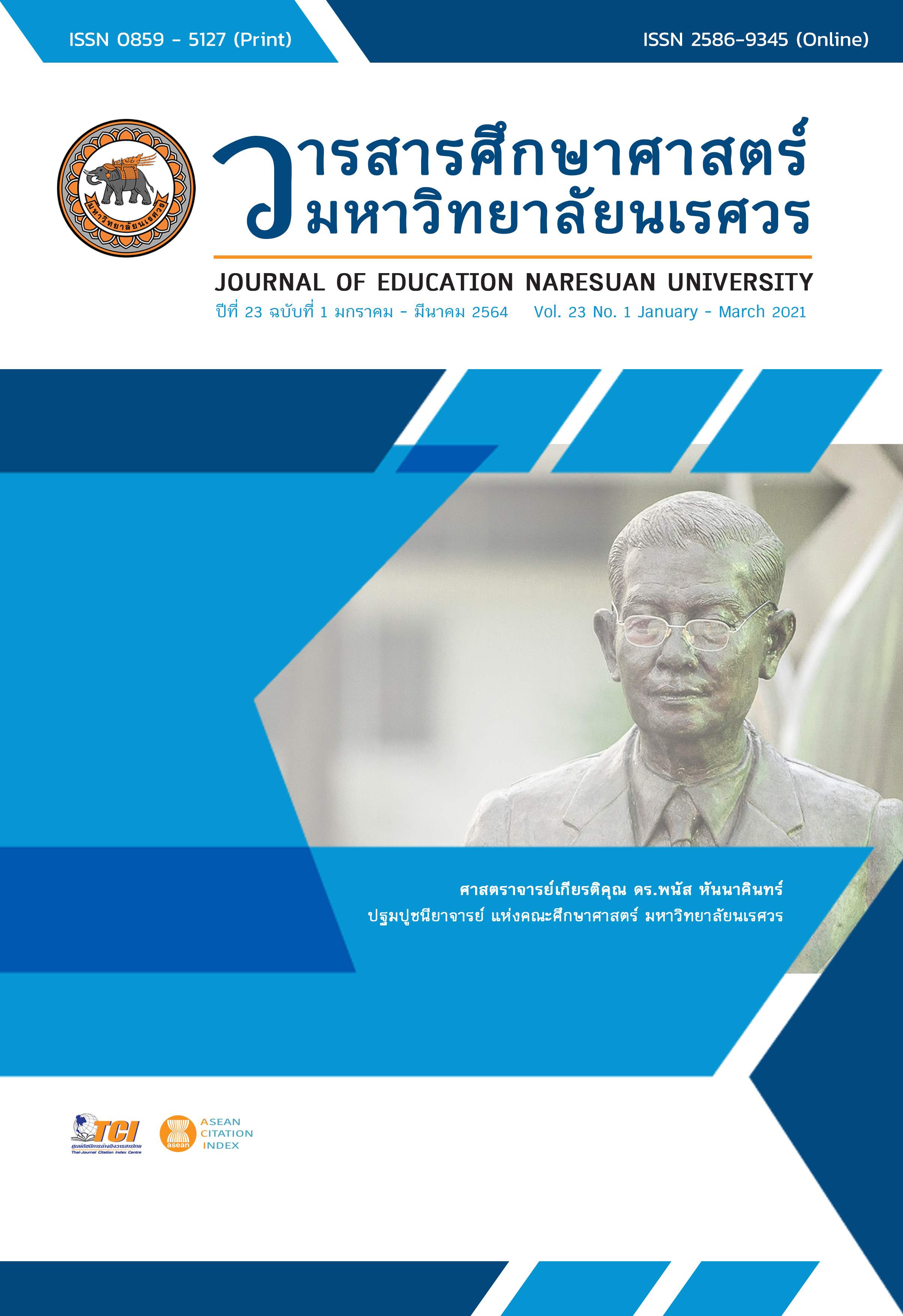SYNTHESIS OF STRATAGIC PLANNING: GUIDELINES OF THE SPORTS ORGANIZATIONS MANAGEMENT IN THAILAND การสังเคราะห์แผนกลยุทธ์: แนวทางการบริหารจัดการองค์กรกีฬาในประเทศไทย
Main Article Content
Abstract
The purpose of this study is to study the management of sports organizations in Thailand and to synthesize the related theses through the method of applying ethnographic analysis. It is based on the concept of management process and consists of four components: organizational planning, implementation leadership and control to determine the management strategy of sports organizations in Thailand. A study was conducted on the feasibility and practical viability of sports organizational management in Thailand. The research found the following; 1) strategies for planning found that the management team of sports organizations should go into a more detailed study of the national sports development plan as well as other major sports plans. This is necessary to develop a plan to meet the goals and mission of the organization. It should be made clear to staff that they must develop their own short-term and long-term plans. Furthermore, sports organization executives should have the same expectations from sports-related agencies and considered the information to plan the operations of the organization. 2) Organizational strategies for implementation found that sports organizations should organize regional and local sporting events. In order to increase the likelihood of people playing sports, an organization needs to be restructured and managed faster and more efficiently. The system must be managed in a systematic way, with an emphasis on transparency and maximum benefit. 3) Strategies for leading sports organizations must learn to understand the principles of sports management in order to develop their own potential and to create a clear role in acting as a sports organization leader. This can be enhanced by acting with real commitment and dedication to the operation. As well as sports organizational management, the staff must be trained to improve their foreign language skills. And 4) control strategies found that sports organizations needed to control their operations in line with their corporate vision and mission statement in a consistent manner and annual performance summaries for the agency. It is important to remember that the most important thing is to confirm that you know what you are doing and can use inaccuracies to improve the operations.
Article Details
The owner of the article does not copy or violate any of its copyright. If any copyright infringement occurs or prosecution, in any case, the Editorial Board is not involved in all the rights to the owner of the article to be performed.
References
Mahapasuthanon, T. (2011). Principle of management. Bangkok: PNK & Sky Printing. [in Thai]
Marcu, V. (2013). Sports organizations–management and science. Retrieved from http://www.sciencedirect.com/science/article/pii/S1877042814018114
Meesil, N. (2016). Delphi technique: Avoidance of misconception. Veridian E-Journal, Silpakorn University, 9(1), 1256-1267. [in Thai]
Ministry of Tourism and Sports. (2012). Report the results of the analysis of strengths opportunities, problems, obstacles, and trends to develop a provincial sport strategy regional Sports Strategy and guidelines driving the national sport development plan No. 5 (2012 - 2016). Bangkok: OTEP Printing House. [in Thai]
Ministry of Tourism and Sports. (2016). National Sports Development Plan No. 6 (2017-2021) (Draft). Retrieved April 20, 2016, from http://www.harvardasia.co.th/wp-ontent/uploads/2016/09/903/MinistryofTourismandSports [in Thai]
Noblit, G. W., & Hare, R. D. (1988). Meta-Ethnography: Synthesizing qualitative studies. Newbury Park: Sage.
Sanrattana, V., Phrakrusutheejariyawat, Phrakrudhammapismai, Phramahasuphachai Subhakicco, & Thacha, W. (2018). Leadership for the 21st century. Journal of Education Naresuan University, 20(1), 261-271. [in Thai]
Serirat, S., et al. (2002). Organization and management. Bangkok: Diamond in Business World. [in Thai]
Siriwattanakorn, P. (2012). The management of the sport association of Thailand. Journal of Sports Management Association of Thailand, 1(3), 36-51. [in Thai]
Tanpanich, T. (2015). Strategic management model of social responsibility of sports authority of Thailand. Journal of Sports Science and Technology, 15(1), 157-170. [in Thai]
Tjønndal, A. (2016). Sport, innovation and strategic management: A systematic literature review. Brazilian Business Review, 13, 38-56. 10.15728/edicaoesp.2016.3.
Ungpakornkaew, N. (2012). Strategic planning with analysis of organizational context for Thai sports organization. Journal of Sports Management Association of Thailand, 2(2), 64-76. [in Thai]
Wiratchai, N. (1999). Meta-analysis. Bangkok: Chulalongkorn University. [in Thai]
Yavirach, N. (2013). Modern management. Bangkok: Triple Printing. [in Thai]


